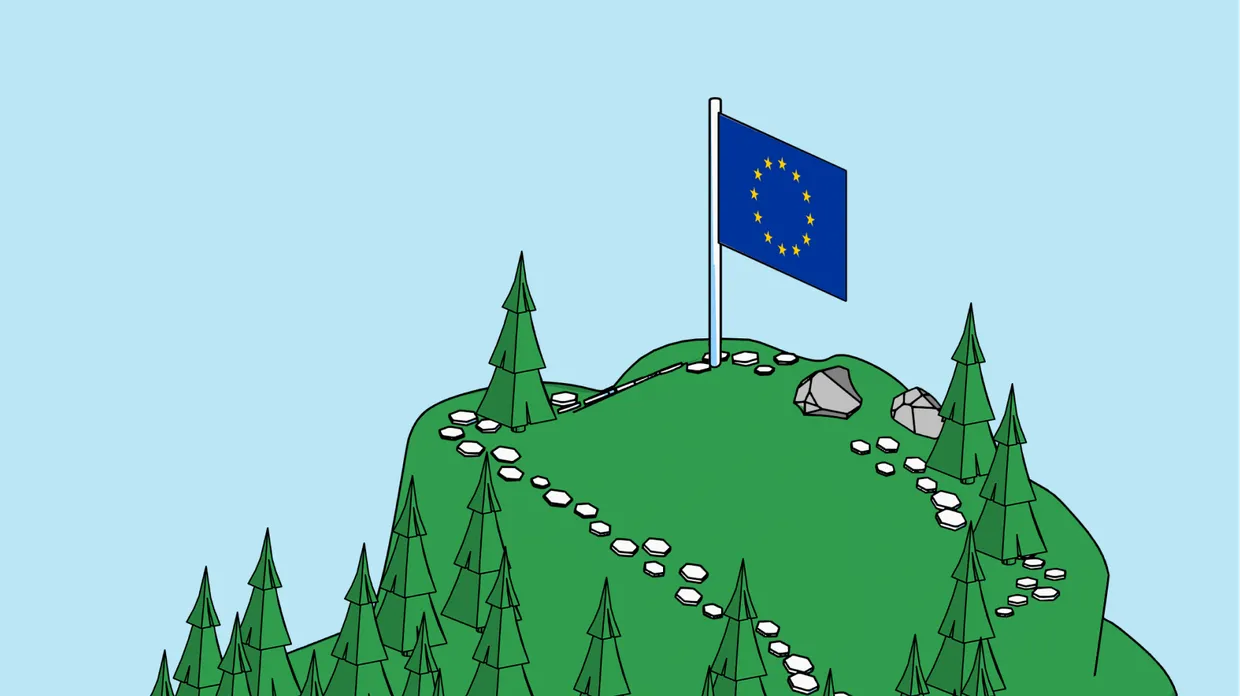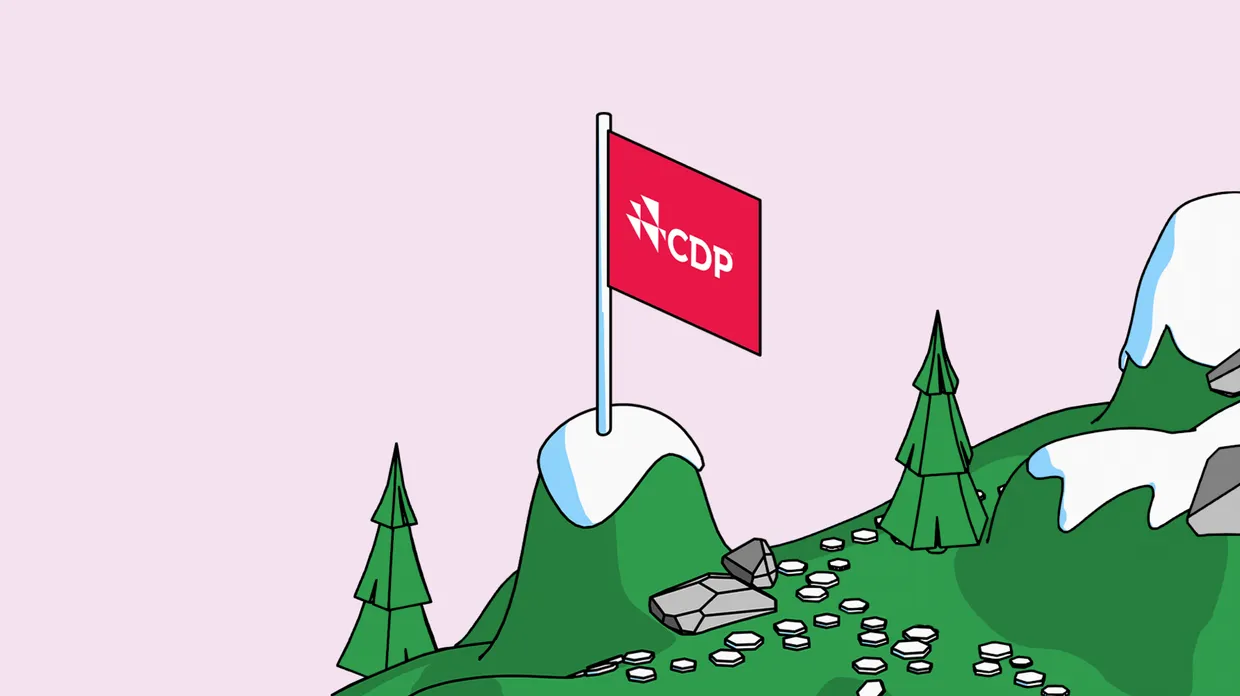From December 2024, businesses trading in specific commodities will need to comply with the European Union’s new deforestation regulation (EUDR). The regulation’s primary goal is to ensure that products in the European market do not contribute to deforestation and forest degradation. Given the scope and potential impact of the EUDR, businesses will need to assess their supply chains rigorously and adjust their practices to meet the EU’s due diligence requirements and comply with relevant legislation.
What is the EUDR?
The EU deforestation regulation (EUDR) is intended to curb deforestation, forest degradation, and biodiversity loss, as well as lowering greenhouse gas emissions. It ensures that products imported into, exported from, or marketed within the EU do not originate from deforested or degraded forests, and promotes sustainable sourcing.
What are the ‘relevant commodities’ covered by the regulation?
The EUDR replaces and strengthens the EU timber regulation, which was limited to the timber industry. It covers seven relevant commodities—cattle, cocoa, coffee, palm oil, rubber, soy, and wood—along with their derivative products.

Note that the EUDR covers products manufactured from 29 June 2023 onwards, except for timber and timber products, which are included if placed on the EU market after 31 December 2027, even if produced earlier. However, items made entirely from materials that have already completed their useful life and would otherwise be disposed of as waste, are excluded from the regulation.
Which businesses are covered by the EUDR?
The EUDR applies to any business, large or small, that places certain commodities or products derived from those commodities on the European Union market.
The legislation sets strict obligations for both ‘operators’ and ‘traders.’
An operator is defined as any natural or legal person that introduces relevant products to the market or exports them during commercial activities. Additionally, if a person outside the EU places relevant products on the market, the first individual or entity within the EU making those products available will also be considered an operator.
A trader, by contrast, refers to anyone in the supply chain, aside from the operator, who distributes or sells a relevant product as part of a commercial activity.
What is the timeline for implementation?
The timeline for implementing the EUDR is as follows:
- June 29, 2023: The regulation entered into force.
- December 30, 2024: Full compliance becomes mandatory for large companies.
- June 30, 2025: SMEs are required to comply with simplified obligations.
With the deadline fast approaching, businesses need to start preparing now. Setting up the necessary infrastructure to track commodities back to the geolocation of the plot of land where they were produced is not a trivial task. This requires the establishment of robust data management systems and coordination with suppliers.
What are the key requirements of the EUDR regarding deforestation and forest degradation?
At the core of the EUDR are stringent due diligence requirements aimed at ensuring that commodities are deforestation-free and comply with relevant legislation. These requirements apply to both operators and traders and include the following:
Comprehensive information gathering
Businesses must collect precise information about the commodities they trade, including geographic coordinates, production dates, and the legal framework of the production country. This includes ensuring compliance with local environmental, land-use, labor, tax, and human rights laws, as well as relevant legislation. Adhering to sustainable forest management practices is also crucial. Geospatial analysis is often used to gather precise information about these commodities.
Risk assessment
Using the gathered information, businesses must conduct a detailed assessment of risk to determine if the product might be linked to deforestation or forest degradation. Factors include the prevalence of illegal logging, deforestation, or degradation in the region, and the complexity of the supply chain. Traceability systems play a crucial role in conducting thorough risk assessments.
Risk mitigation
If the risk of deforestation is identified, companies must take appropriate mitigation measures. These could include gathering additional information, conducting independent audits, or supporting suppliers to transition to deforestation-free practices. Additionally, implementing supply chain certification can be an effective method for mitigating risks.
Due diligence statement
Once the risk is determined to be negligible, businesses must submit a due diligence statement through a European register. This statement certifies that the product complies with EUDR regulations. Compliance monitoring is crucial in ensuring the accuracy of these due diligence statements.
Failure to comply with these requirements can result in severe penalties, including fines of up to 4% of the company’s EU turnover and potential confiscation of products.
How will supply chains be affected?
The EUDR will have far-reaching implications for global value chains, especially for businesses sourcing commodities from countries with high rates of deforestation or weak environmental regulations.
The regulation mandates the collection of granular data, such as geolocation of the land where commodities were cultivated, and requires businesses to ensure that no deforestation has occurred post-December 31, 2020. Supply chain mapping is crucial for understanding the impact of the EUDR.
This requirement will place considerable pressure on businesses to monitor their supply chain closely, often requiring them to establish new partnerships with suppliers who can guarantee deforestation-free commodities.
Companies dealing with complex supply chains may need to invest in new technologies, such as blockchain or geospatial analysis, to track and verify the origin of their products. Additionally, the regulation could reshape global sourcing patterns, as businesses may shift away from high-risk regions to lower-risk areas with more transparent practices.
Moreover, downstream businesses in the value chain, such as processors or retailers, are also affected. They must ensure their suppliers are compliant with the EUDR, and if products are found to be non-compliant, they may face reputational damage or fines. This means transparency and traceability will become critical components of supply chain management.
What can businesses do to prepare due diligence statements?
With the EUDR’s compliance deadline looming, businesses must take proactive steps to ensure they are prepared. Here’s what you can do:
Map your supply chains: Begin by mapping your supply chains and identifying any exposure to commodities covered by the EUDR. Engage with suppliers to gather critical information about the origin and legality of products, including geolocation data and compliance with local laws.
Conduct a thorough risk assessment: Assess the risk of deforestation and forest degradation within your supply chains. Identify high-risk regions or suppliers and evaluate their practices. Use publicly available risk-assessment tools, such as those provided by the EU, to categorize your suppliers.
Build robust data collection and tracking systems: Invest in technologies that allow you to trace commodities from their source to the EU market. Digital tools such as blockchain and geographic information systems (GIS) can help ensure transparency in complex value chains.
Engage with suppliers: Collaborate with your suppliers to ensure they understand the EUDR requirements. Offer support in transitioning to deforestation-free practices where necessary. In regions where the risk is high, consider conducting supplier audits or independent verifications to ensure compliance.
Prepare your due diligence statement: Establish a process for preparing and submitting your due diligence statement through the European register. This document is crucial in certifying that your products comply with the EUDR’s requirements. Supply chain audits play a significant role in preparing these statements by verifying compliance and identifying potential risks.
Review legal and compliance frameworks: Ensure that your company’s legal and compliance teams are up to date on EUDR requirements. They should be prepared to manage the documentation and procedures necessary for EUDR compliance and monitor developments in EU regulations that could affect your industry.
Mitigate risk in high-risk countries: In high-risk regions, implement stronger oversight and consider working with local experts or NGOs to ensure sustainable practices are adhered to. Risk mitigation could include independent audits, supply chain certifications, and targeted investments in supplier training.
What are the consequences of non-compliance?
Non-compliance with the EU deforestation regulation can have significant implications for businesses. Companies that fail to meet the due diligence process requirements or place deforestation-linked products on the EU market risk facing hefty penalties, including fines of up to 4% of their annual EU turnover.
In addition to financial repercussions, non-compliant products may be confiscated, and companies could be banned from operating within the EU market. The reputational damage associated with non-compliance can also be severe, as consumers and stakeholders increasingly expect transparency and sustainability in business operations.
To avoid these risks, businesses must implement corrective measures, such as improving their supply chain monitoring, enhancing data collection systems, and ensuring their suppliers adhere to deforestation-free practices. Emphasizing regulatory compliance is crucial to avoid the severe consequences of non-compliance.
Start preparing today
The EU regulation on deforestation-free products represents a significant shift in how businesses must approach their value chains. With the regulation aiming to halt the EU’s contribution to global deforestation, businesses must act quickly to align with its stringent requirements.
Beyond compliance, companies that embrace the regulation can benefit by enhancing their sustainability credentials, strengthening their supply chains, and contributing to global environmental goals. Early preparation also fosters supply chain resilience, ensuring businesses can adapt to future challenges more effectively.
For business leaders, now is the time to act. Start by understanding the scope of the EUDR, assess how it affects your suppliers, and implement the necessary systems and processes to ensure compliance. With diligent preparation, businesses can turn this regulatory challenge into an opportunity for sustainable growth.



